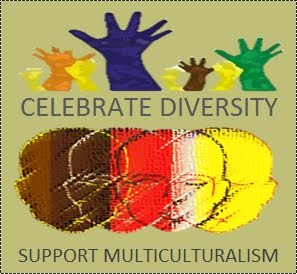Deadline: 31 December 2011
This conference seeks to explore the complex historical, theoretical, and textual relationships between feminisms and queer sexualities, and to examine the (re)significations of this dynamic in literature and culture. Writers of color, community activists, or sexual minorities have forcefully argued that experiences of patriarchy are deeply inflected by differences in sexual orientation, race, ethnicity, class, age, and national (dis)privilege. It thus seems only natural today to refer to feminisms in their plurality, such as first/third world feminism, black feminism, lesbian feminism, liberal feminism, radical feminism, women of color feminism, transgendered feminism, and ¡°queer feminism.¡± There is, of course, often an analytic separation between gender and sexuality in actual practices of reading and critique. Queer sexual identifications in the most inclusive sense of gay/lesbian, bisexual, transsexual, transgender, and transvestite, and ¡°nonnormative¡± sexual practices such as prostitution, sex work, nonmonogamy, public sex, and sadomasochism have been politely relegated to a separate realm from feminism. Yet a serious engagement with gender would de facto entail the understanding of sexuality as not separate but additive; and thus ¡°queer¡± as not simply exclusive to ¡°queer-identified¡± texts, performances, productions, and authors.
The purpose of this conference is to probe the ways in which ¡°feminism¡± and ¡°queer¡± are intimately related in their continuous reckoning with reductive definitions of human identity and difference, and in their commitment to contest all oppressive conditions of fixity and containment. We hope to address questions such as ¡°What are the historical, material, and discursive dis/continuities between feminism and queer theory? What is queer feminism/feminist queering? What is a feminist text/critique and a queer text/critique? How do literary/cultural productions as representations engage in the overlapping of or disruptions between feminism and queer?
In lieu of symptomatic readings that concentrate on how ¡°feminist¡± or ¡°queer¡± texts signify feminist or queer ideologies, we hope to open up discussions of how issues of sexuality and gender are informing of all narratives, through their elision or othering, as well as in their textual prominence. We invite the voices of scholars in various disciplines including literature, film, theatre, media, performance, gender, sexuality, queer, sociology, anthropology, and translation. Papers can address a broad range of topics not restricted to those below:
A 250-word abstract and one-page CV are requested by December 31, 2011, to the FSEL Organizing Committee at fselconf2012@gmail.com. Accepted papers will be announced by the end of February 2012.
Contact Information:
For inquiries: fselconf2012@gmail.com
For submissions: fselconf2012@gmail.com
Website: http://www.fsel.org/
Read more +
This conference seeks to explore the complex historical, theoretical, and textual relationships between feminisms and queer sexualities, and to examine the (re)significations of this dynamic in literature and culture. Writers of color, community activists, or sexual minorities have forcefully argued that experiences of patriarchy are deeply inflected by differences in sexual orientation, race, ethnicity, class, age, and national (dis)privilege. It thus seems only natural today to refer to feminisms in their plurality, such as first/third world feminism, black feminism, lesbian feminism, liberal feminism, radical feminism, women of color feminism, transgendered feminism, and ¡°queer feminism.¡± There is, of course, often an analytic separation between gender and sexuality in actual practices of reading and critique. Queer sexual identifications in the most inclusive sense of gay/lesbian, bisexual, transsexual, transgender, and transvestite, and ¡°nonnormative¡± sexual practices such as prostitution, sex work, nonmonogamy, public sex, and sadomasochism have been politely relegated to a separate realm from feminism. Yet a serious engagement with gender would de facto entail the understanding of sexuality as not separate but additive; and thus ¡°queer¡± as not simply exclusive to ¡°queer-identified¡± texts, performances, productions, and authors.
The purpose of this conference is to probe the ways in which ¡°feminism¡± and ¡°queer¡± are intimately related in their continuous reckoning with reductive definitions of human identity and difference, and in their commitment to contest all oppressive conditions of fixity and containment. We hope to address questions such as ¡°What are the historical, material, and discursive dis/continuities between feminism and queer theory? What is queer feminism/feminist queering? What is a feminist text/critique and a queer text/critique? How do literary/cultural productions as representations engage in the overlapping of or disruptions between feminism and queer?
In lieu of symptomatic readings that concentrate on how ¡°feminist¡± or ¡°queer¡± texts signify feminist or queer ideologies, we hope to open up discussions of how issues of sexuality and gender are informing of all narratives, through their elision or othering, as well as in their textual prominence. We invite the voices of scholars in various disciplines including literature, film, theatre, media, performance, gender, sexuality, queer, sociology, anthropology, and translation. Papers can address a broad range of topics not restricted to those below:
- Queer feminism and feminist queering
- Feminism and transgender/transvestite
- Feminism, transnational sex tourism, and (queer) prostitution
- Feminist and queer literary/film/performance studies/critique
- Feminist and queer narratologies/stylistics
- Feminist and queer personal narratives/life writing/autobiographies
- Feminism, queer sexualities, and capitalism/colonialism/postcolonialism
- Queer and cultural studies
A 250-word abstract and one-page CV are requested by December 31, 2011, to the FSEL Organizing Committee at fselconf2012@gmail.com. Accepted papers will be announced by the end of February 2012.
Contact Information:
For inquiries: fselconf2012@gmail.com
For submissions: fselconf2012@gmail.com
Website: http://www.fsel.org/





